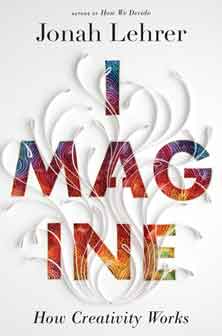From an interview with Jonah Lehrer, author of Imagine: How Creativity Works.
Why doesn’t brainstorming work? What should we do instead?
I think the failure of brainstorming is inseparable from its allure, which is that it makes us feel good about ourselves. A group of people are put together in a room and told to free-associate, with no criticism allowed. (The assumption is that the imagination is meek and shy — if it’s worried about being criticized, it will clam up.) Before long, the whiteboard is filled with ideas. Everybody has contributed; nobody has been criticized. Alas, the evidence suggests that the overwhelming majority of these free-associations are superficial and that most brainstorming sessions actually inhibit the productivity of the group. We become less than the sum of our parts.
However, in recent years, scientists have shown that group collaborations benefit from debate and dissent; it is the human friction that makes the sparks. (There’s a reason why Steve Jobs always insisted that new ideas required “brutal honesty.”) In fact, some studies suggest that encouraging debate and dissent can lead to a 40% increase in useful new ideas from the group.
You talk a lot about the benefits of cultural mixing. What legislative changes would encourage more of this?
More immigrants! The numbers speak for themselves. According to the latest figures from the U.S. Patent Office, immigrants invent patents at double the rate of non-immigrants, which is why a 1% increase in immigrants with college degrees leads to a 15% rise in patent production. (In recent years, immigrant inventors have contributed to more than a quarter of all U.S. global patent applications.) These new citizens also start companies at an accelerated pace, co-founding 52% of Silicon Valley firms since 1995.
Many of the anecdotes in Imagine have a disconcerting common theme of drugs or mental illness. Are creative people all doomed to be addicts or mad men?
I don’t think so. (Yo Yo Ma, for instance, is a very nice guy.) But I do think the prevalence of such stories reminds us that creativity is damn difficult, which is why those in the creativity business are always looking for every possible edge. That’s why many great writers experimented with amphetamines and why performers have always searched for compounds that let them get out of their head, silencing that voice that kills their spontaneity. In the end, of course, these chemical shortcuts rarely work out — there’s nothing creative about addiction. And that’s why I remained convinced that the best creativity booster is self-knowledge. Once we know how the imagination works, we can make it work better.
More Q&A at Mashable
Thx to Jesse Newhart
